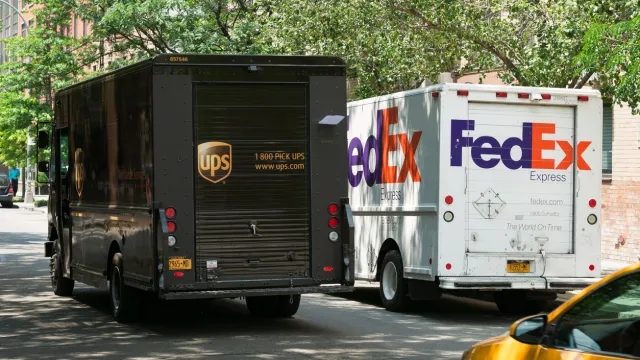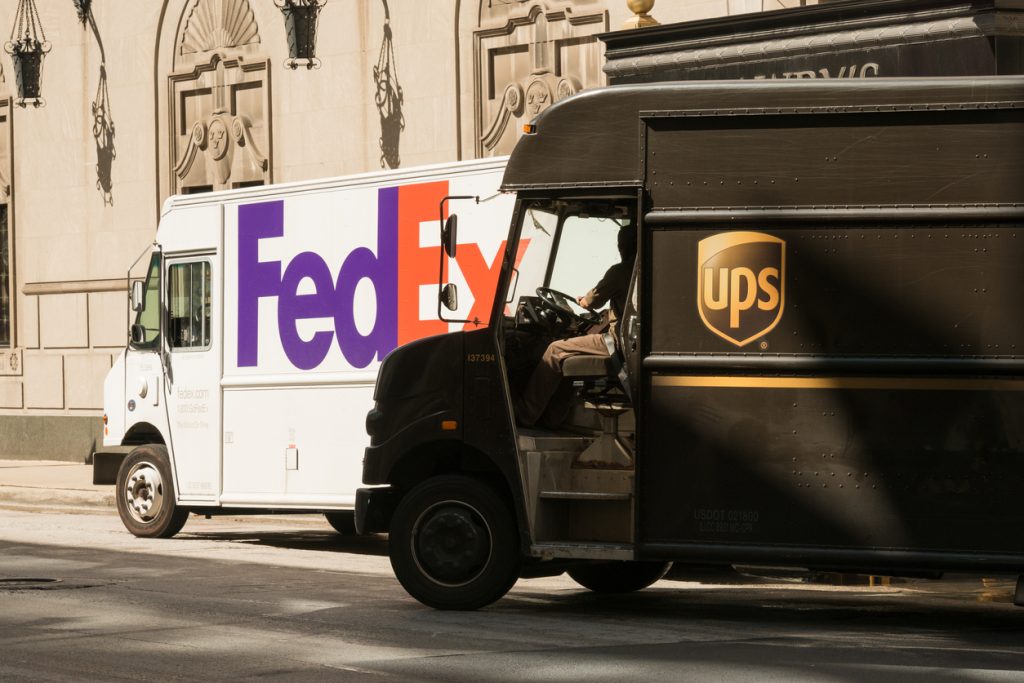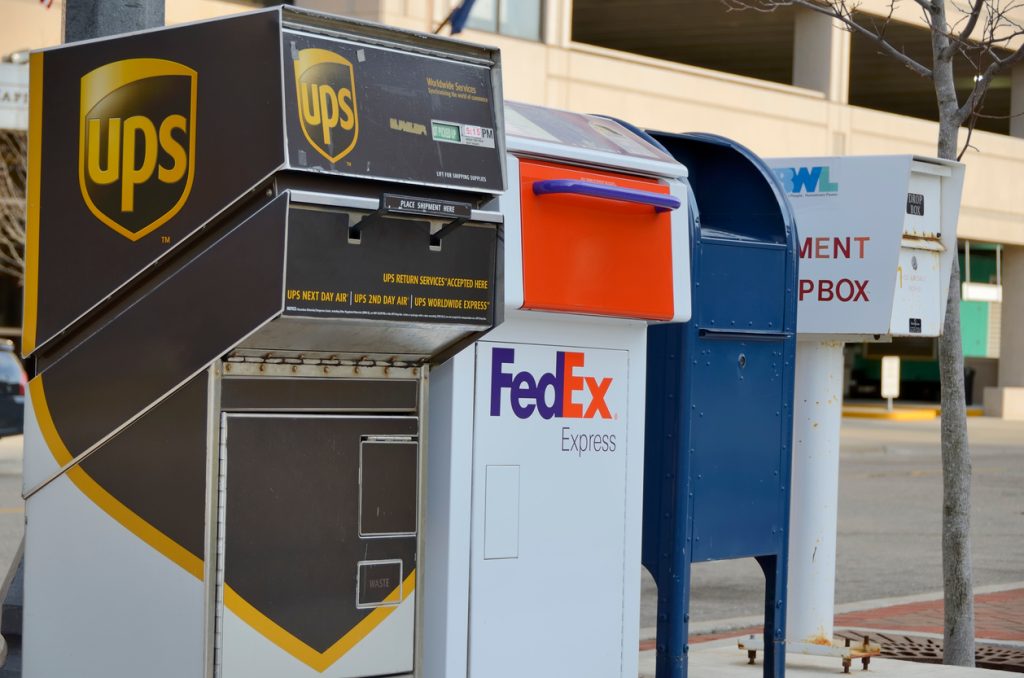FedEx vs. UPS: Experts Say One is Clearly Better

Whether you’re sending a single package to a loved one or running a complicated e-commerce business, UPS and FedEx stand out as two of the most viable shipping options on the market. While both provide roughly the same services as the U.S. Postal Service, the privately owned courier companies stand apart for their ability to offer lightning-fast deliveries to addresses across the U.S. and around the world. But when you’re looking to get the most for your money, it can help to get a more in-depth comparison of the two companies before you hand off your parcels. Read on to see which option experts say is clearly better when it comes to FedEx versus UPS.
RELATED: 6 Warnings to Customers From Former FedEx Employees.
At first glance, FedEx and UPS run very similar operations.

If you’ve ever felt lost as to how different UPS and FedEx could possibly be, it’s not your fault. Besides the stark difference between their logos, the two companies share some strikingly similar characteristics that speak to their ability to provide service to their customers.
Sales figures show both companies generate roughly the same revenue across the 220 countries they serve worldwide, with FedEx earning $84 billion in 2021 and UPS making $97.2 billion in 2020, according to financial firm PIRS Capital. Both also offer shipping options ranging from ground to overnight air express and operate retail outlets for customers.
However, there are still a few differences. UPS operates more ground vehicles, with over 100,000 delivery trucks compared to FedEx’s 87,300. But FedEx can claim air dominance with its fleet of 684 aircraft versus UPS’s 290 planes, according to PIRS Capital.
RELATED: 5 Warnings to Shoppers From Ex-Amazon Delivery Workers.
Experts say each logistics company has its own strengths and weaknesses.

When trying to measure the strength of two companies, it can be easy to rely just on their operational abilities. But according to experts, FedEx and UPS each have different pros and cons in practice.
“I find UPS to be better with smaller non-freight packages,” says Lou Haverty, owner of e-commerce business Tank Retailer. “They offer really great low rates for small packages.”
However, the company is limited in that they do not offer freight shipping—and it can be challenging to navigate its customer service department. “If you need to reach a real person by phone, you can expect to navigate a very challenging maze,” he warns.
On the other hand, Haverty says FedEx can be very competitive and reliable for freight shipping. “The company also has better customer service than UPS. If you have an issue with your delivery, reaching a real human with FedEx can be much easier,” he tells Best Life.
But if you’re not shipping something gigantic, it might cost you. “In my experience, the main negative is that FedEx is typically more expensive than UPS for smaller packages,” he says.
RELATED: 5 Warnings From Ex-UPS Employees.
Some experts claim that FedEx is the clear winner between the two options.
![New York, New York, USA - March 13, 2013: A parked FedEx Express truck in midtown Manhattan in front of a Fedex Office store in the afternoon. FedEx is one of the leading package delivery services offering many different delivery options. Fedex Office stores act as a shipping depot as well as office supply and service stores. People can be seen on the street. [url=/my_lightbox_contents.php?lightboxID=3623142]Click here for more[/url] New York images and video.](https://bestlifeonline.com/wp-content/uploads/sites/3/2020/10/fedex-office-storefront.jpg?quality=82&strip=all&w=1024)
Pound for pound, picking a clear winner between the two might appear difficult. But one industry insider says there’s a clear winner—especially for larger-scale operations thinking about the big picture.
“FedEx is the superior option regarding visibility, express service, and volume shipping,” Spencer Stelifa, a shipping expert and CEO and founder of Shuddl.io, tells Best Life. “They have more affordable rates for time-sensitive deliveries and offer emissions tracking for shippers through their Sustainability Insights program to help businesses better understand their environmental impact.”
RELATED: FedEx Shipping Prices Are Soaring—Here’s What to Expect.
However, analysts also say the two companies may be too similar to make a concrete decision.

Still, other experts caution that the differences between the two companies are too nuanced to crown one supreme, especially for individual customers.
“Both FedEx and UPS have exceptionally robust networks and offer numerous services for customers to choose from depending on a wide range of criteria, including everything from how much the package weighs to how large it is and, of course, when it needs to be delivered,” says Josh Dunham, co-founder and CEO of shipping data and analysis company Reveel. “The reality is that there are simply too many variables involved with every shipment to make a blanket statement about which carrier is best, as it depends not only on the many fees and surcharges at play but also the zones involved and other variables.”
Dunham explains that corporate clients can often secure special business rates with both FedEx and UPS, eliminating many surcharges, shipping rules, and fees that can “dramatically impact” what it costs to ship a single parcel based on their published pricing.
“Both carriers expect corporate shippers to negotiate with them for more favorable rates, terms, and conditions, which is why some companies pay more to ship parcels than others,” he says, meaning that retail customers are left in the grey area created by their individual situation. In this case, it can be best to shop between the two carriers to see which will offer the best rate before you send off your package.
For more advice delivered straight to your inbox, sign up for our daily newsletter.